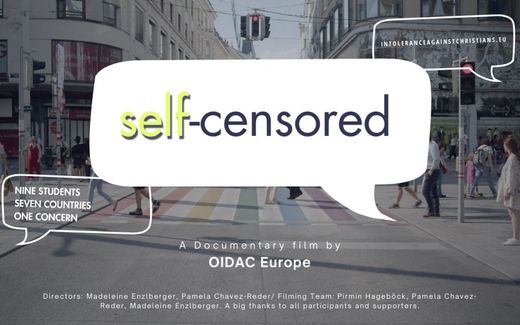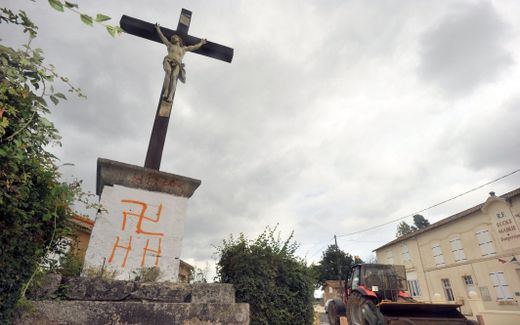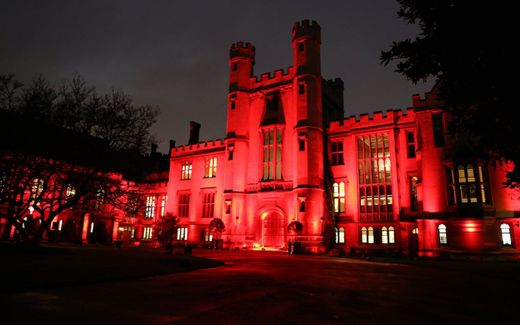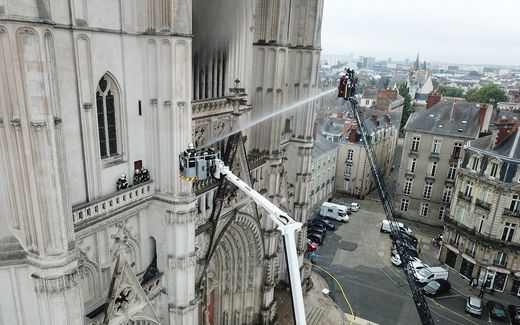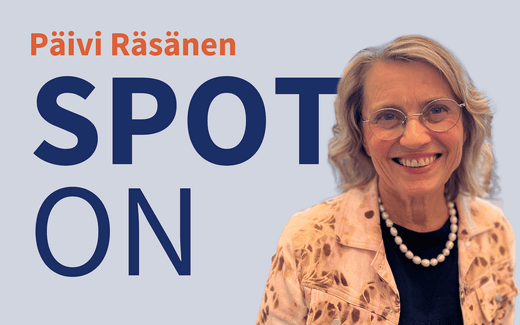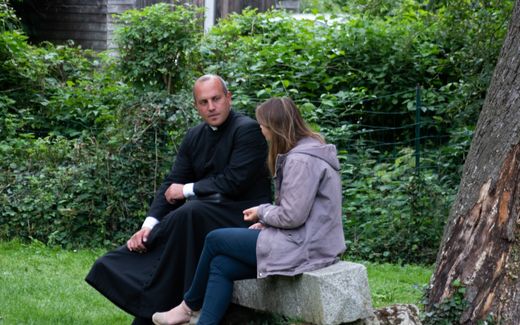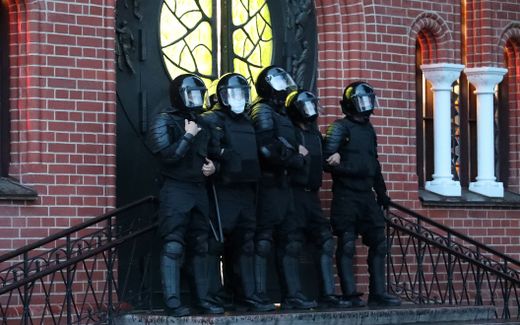Christians in danger; attacks in Europe are rising again
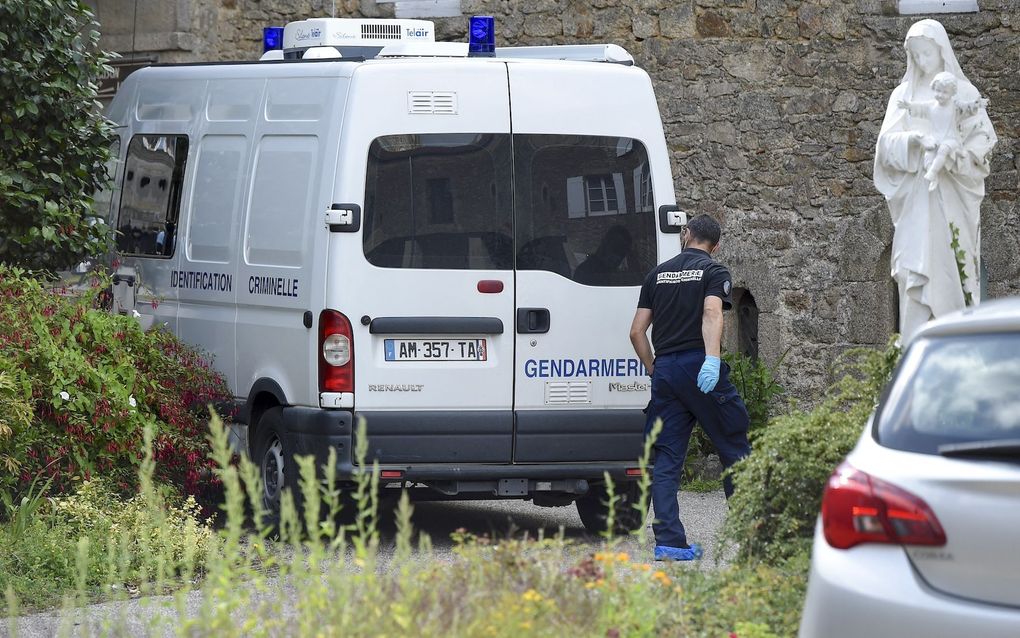
Forensic services at a crime scene in a French church in France in 2021. Photo AFP, Sebastien Salom-Gomis
European Union
Violence and discrimination against Christians and other believers in Europe have increased in recent decades. In 2023, 2,444 anti-Christian hate crimes were identified in 35 European countries, including 232 personal attacks on Christians. A secular, wokeist agenda supported by highly influential lobby groups is part of the explanation.
Stay up to date with Christian news in Europe? Sign up for CNE's newsletter.
This is the conclusion of the annual report by the Observatory on Intolerance and Discrimination against Christians in Europe (OIDAC Europe), published today in Vienna.
The report also reveals that many Christians in Europe are facing discrimination and social hostilities at their workplace. At least 56 per cent of Christians in the UK experience some hostility and ridicule; 18 per cent are treated in a discriminating way, found a recent survey.
"The space for Christians in Europe is shrinking’, according to Anja Hoffmann (31), the think tank's executive director. "And I am very concerned that this increasingly leads to self-censorship among Christians.
Christians may increasingly disappear from the public sphere, which has become more hostile towards them. This public sphere also includes universities, as the organisation highlighted in a documentary published this year.
In 2023-2024, the most affected countries in Europe are France, the United Kingdom and Germany, with anti-Christian hate crimes doubling in Germany compared to last year. The data collected by OIDAC reveal widespread discrimination against Christians in the workplace and various spheres of society.
The expression of traditional religious beliefs is increasingly met with hostility and can lead to discrimination and bullying at work or even to loss of employment.
Anja Hoffmann tells the story of a young man initially offered a job. Still, after his new employer saw a message he posted on Facebook defending the traditional Christian view of marriage (between one man and one woman), he was rejected.
In court, it became abundantly clear that this young man never discriminated against anyone and that his former clients only spoke about him in a very laudatory way.
The court decided the employer had wrongfully confused the young man’s convictions and possible discriminatory behaviour. However, the employer was not found guilty, and the young man never got his job because the court said it could understand that the young man’s convictions might give rise to problems.
Chilling
Another conclusion of the OIDAC Europe report is that predominantly Christian politicians are vulnerable to discrimination based on their personal religious beliefs and may be forced to choose between their political career and their religious beliefs.
These forms of discrimination have a "chilling effect", leading many Christians, particularly among the younger generation, to self-censor or even hide their beliefs at university and in the workplace.
The OIDAC report also identifies several restrictions on religious freedom affecting Christians in Europe. These restrictions concern public prayer, religious manifestations, public expression of religious beliefs, religious autonomy, parental rights and conscious objection to military service and certain medical procedures.
These legal restrictions can go very far: in 2023-2024, several people have been fined and prosecuted for peacefully praying in public streets in so-called ‘buffer zones’ around abortion clinics, including a man convicted in the UK for praying silently in his own mind.
Human rights
The Observatory on Intolerance and Discrimination against Christians in Europe (OIDAC Europe) was founded in 2010 and is based in Vienna. The institute, a non-governmental organisation, presents itself as a human rights organisation where Christians and non-Christians work together.
It aims to preserve religious freedom in Europe, the freedom of public manifestation of religion and the freedom of expression: these rights are regarded as the nucleus and foundation of human dignity and human rights.
Its research focuses on the marginalisation and discrimination of Christians in Europe by collecting objective as well as reliable data in Europe. Europe is defined geographically and embraces 44 countries.
For its latest report, OIDAC has gathered verifiable data from 35 countries and has made clear what is happening in Europe. OIDAC also aims to influence the general public and politicians of all persuasions.
For this reason, OIDAC actively participates in meetings in the European Parliament and the OSCE in which religious intolerance, including anti-Christian hate crimes, is discussed. OIDAC hopes that Christians will become more conscious of their rights and increase their ability to address discrimination.
A spike in discrimination
The facts OIDAC brings together concern intolerance and discrimination. Intolerance refers to social hostilities, like violence against Christians or vandalism of places of worship.

Discrimination refers to the legal aspect of the Christian position in Europe: restrictions on religious freedom, anti-discrimination and anti-hate speech legislation, and problems private businesses may run into because of their Christian convictions.
How is this increase to be explained? Anja Hoffmann is willing to acknowledge that Christians have made mistakes that created a particular bias against them in the past. But that alone is not enough, far from enough, to understand what is going on in Europe.
In Hoffmann’s view, there is a shift in the worldview all over Europe, "new prevailing ideologies" and a "new mindset" that have become dominant.
The essential characteristic of this new worldview is the persuasion that human nature, human dignity, and the human person as defined in the Christian tradition is an obstacle to the full self-determination of the individual. And this self-determination is the central value of modern life. Christian and secular ethics are incompatible: at this point, they flatly contradict one another.
This new mindset is actively propagated by highly influential lobby groups that often succeed in transforming their ideas in legislation or guidelines of international institutions. The activist agenda of the woke worldview is, on the one hand, leading to bizarre examples, like a bill in Scotland that prohibits Christian discussion related to pro-life views in private homes if this conversation can be heard outside the home.
On the other hand, and on a more general level, radical secularism seeks to confine religion entirely to the private sphere and is therefore in direct conflict with the freedom of religion that we must defend to safeguard our pluralistic democratic societies."
Related Articles


